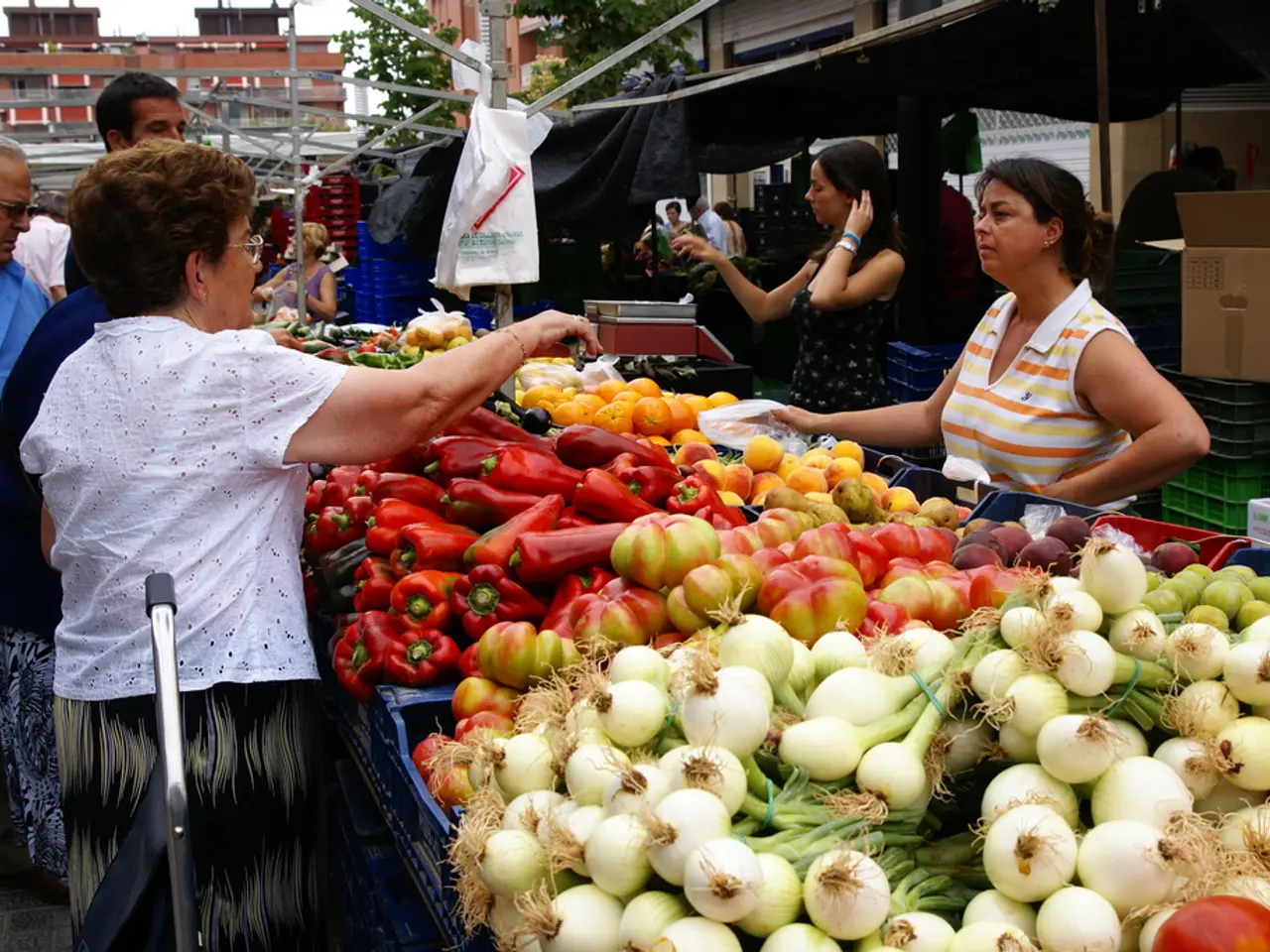Reducing plastic consumption: Strategies to minimize plastic use beyond straws
In an effort to combat the growing issue of plastic pollution, experts and advocates are calling for structural, society-wide changes. One such initiative is the Plastic Free July campaign, led by Rebecca Prince-Ruiz, which encourages individuals to make small changes in their daily lives to reduce plastic waste.
Did you know that approximately 300,000 disposable diapers are sent to landfills every minute globally? These diapers, which are composed of approximately 40% plastic, can take up to 400 years to decompose due to plastic polymers like polypropylene and polyethylene.
Diapers are not the only culprit. Many tampons and pads also have environmental issues due to their plastic content. Wet wipes, often containing plastic, are another source of concern.
Bhavna Middha, a senior research fellow at Melbourne's RMIT University, suggests bringing homemade food to work or school instead of relying on packaged items for a positive environmental and health impact.
Prince-Ruiz acknowledges that going completely plastic-free is not possible, but making small changes can create cultural change and pressure on businesses and governments. She is taking action herself, making her own granola, stock, and beans to reduce packaging waste.
In July, Prince-Ruiz is creating a party kit with reusable cups, plates, bowls, and decorative items. The nonprofit The Party Kit Network also offers tips for creating reusable partyware and provides a directory for finding local places to borrow kits.
Consumer efforts can still have an impact on reducing plastic use. By avoiding the most common single-use plastics like plastic bags, water bottles, straws, and takeaway coffee cups, and substituting with reusable alternatives, we can significantly lower our plastic consumption.
Conducting a personal plastic waste audit to identify which single-use items we use most frequently and focusing on replacing those first can also be effective. Making easy and practical swaps, such as using beeswax wraps or silicone lids instead of cling film, can also help.
Taking gradual steps suited to our lifestyle rather than aiming for perfection—small improvements accumulate quickly to significant plastic waste reduction. Advocating for broader change by supporting policies that restrict single-use plastics, encouraging businesses to offer plastic-free options, and writing to companies about reducing packaging, can also make a difference.
Spreading awareness and building community by sharing our efforts with friends, family, and on social media using hashtags like #PlasticFreeJuly, can motivate collective action. These practical measures embody the Plastic Free July ethos and are supported by environmental experts as effective ways to lower plastic consumption and foster environmental responsibility.
In August, representatives from countries around the world will gather in Geneva to finalize a UN treaty to combat plastic pollution. While progress may be slow, these individual efforts can contribute to a greener future.
- The health and wellness of our planet are linked to the Reduction of plastic waste, as highlighted by the growing issue of plastic pollution.
- Climate change and environmental science advocate for sustainable living, urging individuals to make small changes in their daily lives, such as bringing homemade food to work or school.
- Being a part of the Plastic Free July campaign, led by Rebecca Prince-Ruiz, encourages people to reduce plastic waste through lifestyle modifications, such as avoiding single-use plastics like plastic bags, water bottles, straws, and takeaway coffee cups.
- In the realm of environmental-science, Bhavna Middha, a senior research fellow at RMIT University, proposes bringing homemade food as a positive impact on the environment and health.
- Fashion-and-beauty choices, such as using beeswax wraps or silicone lids instead of cling film, contribute to the food-and-drink category's lower plastic consumption, as advocated by the Plastic Free July ethos.
- By conducting a personal plastic waste audit and making easy and practical swaps, one can participate in the home-and-garden efforts towards sustainable living, creating a more eco-friendly space and lifestyle.




